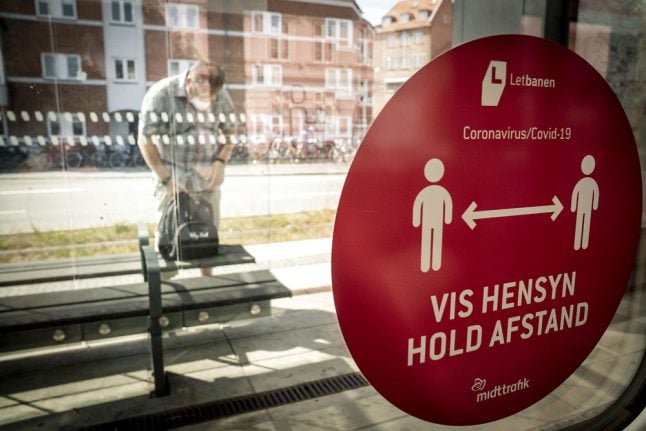Despite improvements in infections figures in Aarhus in recent days, the Danish Patient Safety Authority is to extend measures against the virus, the authority confirmed in a statement on its website.
The measures include recommendations to work from home wherever possible and avoid busy times at supermarkets; and for youth education institutions to postpone physical attendance of classes.
The restrictions are due to a high rate of infections per 100,000 residents in Aarhus Municipality, despite a recent improvement that saw only 13 new cases registered on Wednesday.
READ ALSO: New Danish Covid-19 cases back under 100: could figure be sign of downward trend?
But Silkeborg Municipality, which had also been in the spotlight of health authorities after cases increased there, could see restrictions lifted by August 24th, the Danish Patient Safety Authority said in the statement.
“If the positive trend in Silkeborg continues over the weekend, the measures introduced by the Danish Patient Safety Authority and (Silkeborg) municipality on August 10th with the aim of stopping infection spread will be lifted on August 24th,” the statement reads.
“Things are also going the right way in Aarhus, but … the number of cases per 100,000 people remains high and population density in Aarhus is relatively high. The situation will therefore be followed closely and the measures introduced on August 7th be extended, initially until September 4th,” it continues.
The requirement to wear face masks on public transport will remain in place in both cities however, with the rule since having been made national.



 Please whitelist us to continue reading.
Please whitelist us to continue reading.
Member comments